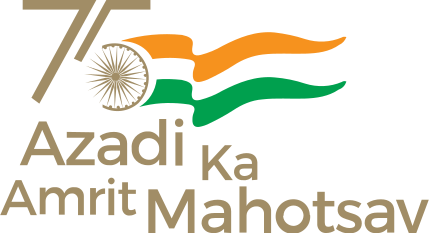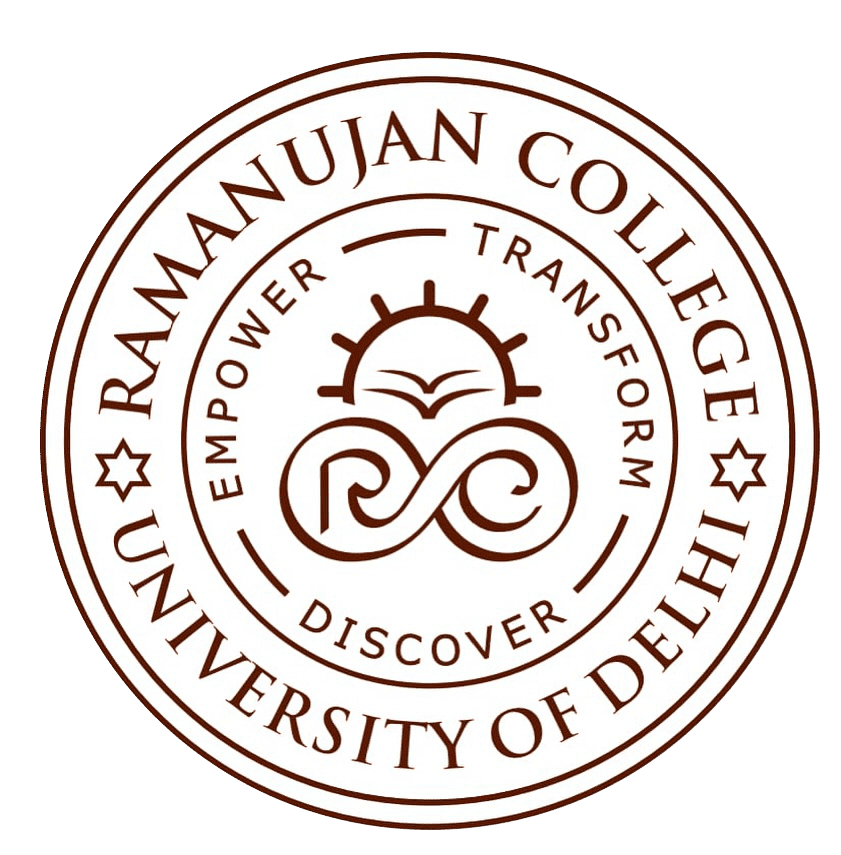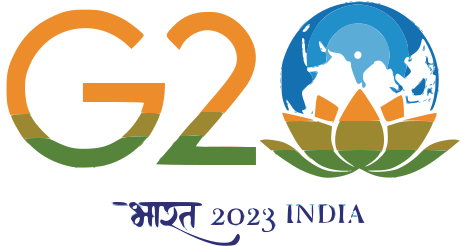In the last five years, the College has successfully undertaken many innovative academic and administrative initiatives. Two of those are being presented as Best Practices.
Best Practice 1
TEACHING LEARNING CENTRE, RAMANUJAN COLLEGE, was established in 2017. It is sponsored by the Ministry of Education (MoE) under the aegis of the Pandit Madan Mohan Malaviya National Mission on Teachers and Teaching (PMMMNMTT) Scheme.
Objectives of the Practice:
The TLC was set up with the motto of “Reaching the Unreached”. The College, through the TLC, endeavours to achieve the following:
- To train teachers, in the higher learning institutions across the country, by conducting quality academic and capacity building programmes. The Centre is mandated by the PMMMNMTT to organize faculty development and enrichment programmes through offline and online modes.
- To create an opportunity for teachers to learn and interact with eminent scholars and academicians.
- To extend formal training to the newly inducted teachers to prepare for future professional engagements.
- To acquaint teachers with modern pedagogical methods, teachers’ responsibilities, curriculum and content creation, scientific assessment and evaluation and ways of creating an inclusive classroom.
- To equip teachers to make the latest research-based knowledge relevant in the classroom.
- To create and provide a platform where academicians across the country, especially teachers from remote areas, can develop, discuss and share the various academic skills, leading to formation of knowledge capital.
The Context:
The teachers in higher education require formal training at the entry level in pedagogical methods and research. Regular exposure to latest skill enhancement and knowledge updation programmes are also required. The College has been playing a constructive role in nation building by reaching out to the larger teaching community and prioritising academic excellence through training programmes.
There was a timely announcement by the erstwhile-MHRD seeking application from colleges/universities for setting up of Teaching Learning Centre/Faculty Development Centres/National Resource Centres/Centre for Excellence. The IQAC applied for the Teaching Learning Centre. Through a rigorous application process and a series of presentations, TLC was awarded to Ramanujan College by the MHRD in 2017. In the University of Delhi, Ramanujan College is one of the two institutions to have received this prestigious Centre.
The Practice:
TLC is an integral component of the PMMMNMTT scheme, which was launched as a foundation for reformed and contemporary educational edifice in the country. The Centre offers Faculty Induction/Orientation Programmes (FIPs) for newly recruited faculty and discipline specific and interdisciplinary Faculty Development Programs (FDPs)/Refresher Courses, Conferences and Workshops.
The FIP content is based on the 12 Modules/Topics as mandated in the mission of the PMMMNMTT, broadly including innovative teaching-learning pedagogies, research methodologies, ICT-enabled curriculum and e-content development, interpersonal skills and institutional values.
Interactive Conferences/Seminars and 1/2/3 Day Brainstorming Programmes are held on varied topics to cultivate creative ideas for meaningful research projects.
The FDP content is usually based on in-depth subject knowledge, quantitative and qualitative research methodologies, and on an interdisciplinary approach as is envisaged in the National Education Policy (NEP), 2020.
The programmes are experiential and learner-centric. A high level of engagement is ensured through daily quizzes/assignments and self-assessment methods. Sessions focus on ICT skills and online teaching/evaluative methods, gender sensitization, stress management, work-life balance, action-oriented evaluation models, research ethics and plagiarism issues.
A TLC lecture theatre has been developed, equipped with the latest technology, like LAN, smart board, gooseneck microphones and speakers to encourage productive conversation. A special office space has been created to carry out routine work.
Distinguished and internationally acclaimed resource persons deliver lectures and conduct sessions on wide ranging disciplines/topics of relevance in the contemporary and ever evolving global scenario to benefit the teaching fraternity, corporates and researchers.
In the context of Covid-19, all programmes are being conducted online, adhering to the MoE and UGC Four Quadrant Approach (e – tutorial, e – content, Self – Assessment and Web Resources).
In order to cater to a large number of online participants, an in-house Learning Management System (LMS) was developed, hosted on CLOUD with high scalability and reliability. The LMS is predominantly participant-friendly and incorporates evaluation methods and comprehensive feedback systems to judge learning outcomes.
There is regular follow-up with the participants, during each programme, through Google Classroom/Telegram/Discussion Forum.
The TLC has developed a programme to equip the teachers with various tools and applications for online teaching and develop Massive Open Online Courses (MOOCs). A number of FDPs/FIPs were launched and thousands of teachers have been successfully trained. Incorporating the NEP 2020 objectives, the MOOC 4.0 course was the first attempt of its kind, launched in 10 different Indian languages at the same time.
In order to organise mutually beneficial teacher training programmes, the College has entered into a number of Memorandums of Understanding (MoUs) with institutions and organisations pan India.
Online certificates are issued using the Blockchain Technology to ensure authenticity and verifiability. All the TLC programmes have enabled the teachers to develop new and unique skills for making their classroom teaching more meaningful and effective.
Evidence of Success:
- Successfully conducted more than 100 programmes since October 2017. TLC programmes have witnessed overwhelming response and there has been consistent demand for more programmes.
- More than one lakh teachers have been trained, many of whom have accessed these programmes from remote parts of the country.
- Numerous oral, written and video feedback from participants, received through entrusted platforms as well as social networking platforms, have testified that the sessions were lively, informative and interactive; the content was beneficial for effective teaching and research; there was significant enhancement of knowledge after attending the programme; and a large number of them would recommend Ramanujan TLC programmes.
- A pool of eminent resource persons has been curated.
- A repository of research and academic knowledge (video lectures, e-content, MOOCs) for ready reference has been developed.
- The organisation of these FIPs/FDPs and management of a large number of programmes was made possible only with the sincere involvement of many committed teachers from various departments of the College. The organiser teachers have gained expertise in conceptualising programme details, production of video lectures, hosting of lectures online as well as in Open edX platforms and managing large numbers of participants. These programmes have helped many teachers to evolve into resource persons and subject experts.
- There has been an increasing demand to collaborate with the TLC. Many colleges and universities from across the country have signed MoUs, to benefit from the TLC’s reach, experience and expertise.
- All the recorded video lectures of the online TLC programmes can be accessed via the Official YouTube Channel of Ramanujan College. The channel already has more than 21,000 subscribers and 70,00,000 views.
- Participants have created more than 2000 practice MOOCs and their own web pages.
- Number of participants and revenue generated have increased exponentially since the inception, which indicates the phenomenal growth of TLC.
Problems Encountered and Resources Required:
- Balancing time between teaching workload and TLC responsibilities for teacher organisers.
- Creating academic content to suit participants’ diverse knowledge level.
- Reaching out to multilingual participants.
- Difficulty faced by the registered participants to get duty leave from their parent institution, especially for four-week offline FIP.
- Evaluation of bulk assignments submitted by the large number of participants.
- Disruption of teaching-learning during Covid-19 and the unavailability of adequate staff in the College to facilitate the programmes.
- For the online programmes, there were problems beyond the control of the TLC, like minor technical glitches, slow internet connectivity and lack of technical know-how of the participants.
As the online programmes began to cater to a larger number of participants, TLC realised that big capacity servers and better portal management were required. The TLC has updated IT infrastructure in terms of Artificial Intelligence, Cloud Computing, Blockchain and Simulations.
List of offline programmes conducted by TLC
List of online programmes conducted by TLC
Best Practice 2
TRANSFORMING RAMANUJAN COLLEGE INTO A DIGITALLY EMPOWERED INSTITUTION AND KNOWLEDGE CENTRE
Objectives of the Practice:
- There has been a consistent emphasis on capacity building which is supported by the Information and Communication Technology (ICT) application in various aspects of the College’s corporate life.
- To use ICT to enrich the teaching-learning practices in the institution.
- To use ICT for increasing work efficiency, save time and avoid duplication of work.
- To use ICT for cost-effective, systematic, paperless documentation and record-keeping.
- To bring the institution at par with international ICT standards.
- To acquire and introduce the latest technology and upgrade existing ICT infrastructure.
- To have ICT systems in place for easy and fast communication networks, nationally and internationally.
- To upgrade the Media Lab with advanced technology for high quality electronic media production. The Media Lab will serve as a resource centre which will be open for use by the other institutions both in Delhi and out and to provide consultancy.
- To reach a larger audience for training and other programmes offered by the College.
The Context:
The Government of India has a major policy emphasis to promote Digital India and e-Governance. In the same spirit, the Institution was conscious of the fact that ICT will have a deep impact on the education system in the future. It will also be an enabler for greater administrative efficiency. Quantitative research, data analysis, use of media and graphics were to be an integral part of the teaching-learning process. In this context, Ramanujan College proactively undertook the process of digitalisation. The traditional methods are needed to be complemented with the modern ICT to acquire and disseminate knowledge, to keep pace with the fast changing digital world and the students’ evolving aspirations.
In the additional context of Covid-19, besides online teaching-learning, all administrative and accounting processes have entirely been shifted to the digital mode. Thus, the pandemic has contextualised and further amplified the on-going digital transformation in the College.
The Practice:
- In the last five years, consistent efforts and financial investments have been made to augment the existing ICT infrastructure. The entire College fraternity has acquainted themselves and embraced the digitalisation process enthusiastically.
- All the classrooms, the conference room and the seminar rooms are ICT-enabled, with projectors and screens.
- The TLC Office, TLC Lecture theatre and the Robotics Lab have been equipped with the latest ICT infrastructure. LED screens have been installed in the TLC Office, Staff Room and Principal’s Office.
- The Media Lab has been upgraded with a sound-proof studio, latest production and post-production equipment, including touch-screen interactive panels. The facilities are used by the students and faculty for electronic media production. The Media Lab is supported by a 100 TB Network Attached Storage (NAS) for safe keeping of digital data.
- The College has developed five computer labs, fully equipped with modern infrastructure and technology, and a total of 160 Mbps internet bandwidth (100 Mbps from University of Delhi, 50 Mbps from DEN Network and 10 Mbps from Jio). The Computer Labs and the Accounting and Finance Lab have been updated with the latest Software packages (SPSS, Mathematica and Tally). The student-computer ratio has been augmented to 3:1.
- The College Library has been fully automated, with a free and open source library management system, KOHA. The library provides e-reader KINDLE to the students to access e-books.
- The College has customised a user-friendly Enterprise Resource Planning (ERP) solution to manage students’ attendance.
- All the administrative offices have been fully computerized and equipped with scanners, printers, internet facilities and necessary software.
- Campus-wide surveillance has been ensured through the installation and maintenance of CCTV cameras at all strategic locations.
- The faculty have been provided with laptops and tablets and the non-teaching staff with smartphones. The Students are also issued laptops as per their requirement.
- Besides the general training programmes, special ICT training is provided to the teaching and non-teaching staff. The Students are upskilled in specialised software and newly acquired equipment.
- The TLC has been pioneering in training teachers across the country in the use of ICT applications, including designing of the MOOCs. More than one lakh teachers of various disciplines have benefitted from the TLC programmes.
Evidence of Success:
- 100% teaching and non-teaching staff of the College have been trained in the use of ICT application.
- As an early ICT initiative, a successful TED Talk was organised by the students in December 2016, titled “Reality Beyond Conventions”.
- There is an increased use of ICT by the teachers in classroom teaching, evaluation and assessments, use of audio-visual resources, applications to engage the students, recording/uploading lectures in various platforms, data analysis through software.
- All the teachers use tablets, with pre-installed Enterprise Resource Planning, for attendance.
- The Administration, Accounts and Library are fully automated, equipped with the necessary infrastructure and software.
- All financial transactions and tendering processes have become faster and easier with the use of digital signature.
- Procurement, accession and issue/return of books from the Library has become easier and faster.
- All official communications and notices are sent via e-mail and other online platforms.
- The teachers use the Media Lab to record lectures. TLC has been extensively using the Media Lab for conducting online teacher training programmes.
- The Media Lab has extended consultancy services to other colleges and institutions across the country. It is also responsible for storing all the audio-visual digital data.
- The students of First Cut Society (film making society) use the Media Lab and its resources for their production and post-production of films/videos/documentaries.
- Ramanujan College has a vibrant presence on the social media platforms including, the official YouTube Channel of the College, Instagram, Facebook and LinkedIn. The staff and students of the College are akin to using these platforms for effective communication and publicise various curricular and extra-curricular events.
- The website of the UGC-Care listed Ramanujan International Journal of Business and Research (ISSN 2455-5959) facilitates the online administration of the entire process of publication, right from the submission of the manuscript to the final publication. In addition, the website has plugins for Crossref indexation, similarity tests, DOI plugin, ORCID login to mention a few. The digitised version of the previous volumes is available in the Archives section of the website.
- In the Covid-19 induced transition to online teaching-learning, the College has adopted a uniform platform, Microsoft Teams, for the daily classes and other related works.
- The use of ICT supports prompt decision making and quick action.
Problems Encountered and Resources Required:
- The non-availability of strong network connectivity (low bandwidth) from the service providers is a major handicap in the use of ICT facilities.
- Varied levels of technical know-how, at times, is a challenge to have all the teachers on the same page.
- In the initial stages, some non-teaching staff found the transition to ICT-based work, time consuming and difficult.
- The online teaching-learning through ICT platforms can not completely compensate for the face-to-face lively interactions.
- The teachers are constantly endeavouring to find ways and means to fill the gap between the offline and online teaching-learning process.
The College has the challenge to cater to increased volumes of digitalisation and take steps to fulfill the requirement of high-capacity servers, CLOUD storage and data processing systems.


